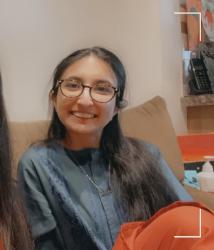
Culture Writer Halima Ahad reviews UoB writer Jess Yung’s first poetry collection Chingllish, calling it an exploration of the bilingual experience
Chingllish is Jess Yung’s first poetry collection, showing the contrasts between the languages of Cantonese and English. It asks important questions such as whether we identify with one language or the other. It is an exploration of the bilingual experience, mainly written in English and Cantonese. It pushes the boundaries of where one language ends and the other begins.
The poetry collection is split into three sections; part one is rejection, part two is association, and part three is wonder. These titles are very insightful because they show what the poems really mean and how they are associated with one another.
The stanzas show that Hong Kong is a beautiful, multi-layered place and each stanza reflects a certain part of its culture
The first section ‘rejection’ begins with the poem titled ‘English meets Cantonese’ with the stanzas gradually breaking up to show the significance of moving from one language to another. The poems focus on food which shows the significance of coming together in the Cantonese culture. Particularly, the poem ‘digest’ which shows the process of eating food and the emergence of Cantonese culture in food. Readers can relate to certain themes of the poetry collection because they feel as if they are learning more about Cantonese culture and what it offers.
The poem which particularly stood out to me was ‘leaving harbour’ which shows the significance of Hong Kong, where writer Yung originally came from. The stanzas show that Hong Kong is a beautiful, multi-layered place and each stanza reflects a certain part of its culture. There are certain expectations people have when visiting Hong Kong but Yung wanted to subvert these expectations by showing the hard work of the citizens of Hong Kong.
Another poem which stood out to me was ‘Miss Porcelain’ from the second section ‘association.’ Yung wanted to dedicate this poem to her grandmother, Christina Widjaja. The poem follows the story of Yung’s grandmother moving to Hong Kong, as she was originally Indonesian, with her significant other. It shows the struggles of learning a new language. From her mother tongue, Indonesian, she had to move to learning about a whole new different language and places she had never been to.
The most significant poem to me was the title poem ‘chingllish’ which is from the last section of the poetry collection ‘wonder’
The most significant poem to me was the title poem ‘chingllish’ which is from the last section of the poetry collection ‘wonder.’ The poem, according to Yung herself, is described as a collage poem. Dedications, these sentiments, which Yung has dedicated to her family and friends have been individually pieced together to reveal the poem itself. It reveals the struggles and hardships one goes through when they are further from their homeland. The glossary is up to the reader which suggests that they make it however they want to and ‘chingllish’ is the epitome of that.
The poems also follow a similar rhyme, meter and order throughout the poetry collection. The personification of food, as well as other significant things in Cantonese culture, shows that Yung wanted the reader to learn more about the culture itself. The poems can be mainly read as an ode to one’s homeland and culture and the pride that they take in this. In the end, I really enjoyed reading Yung’s poetry collection and I hope to read more of her work in the future.
Enjoyed this? Read more on Redbrick Culture!
New Book Release Review: The Money Edit by Makala Green

Comments